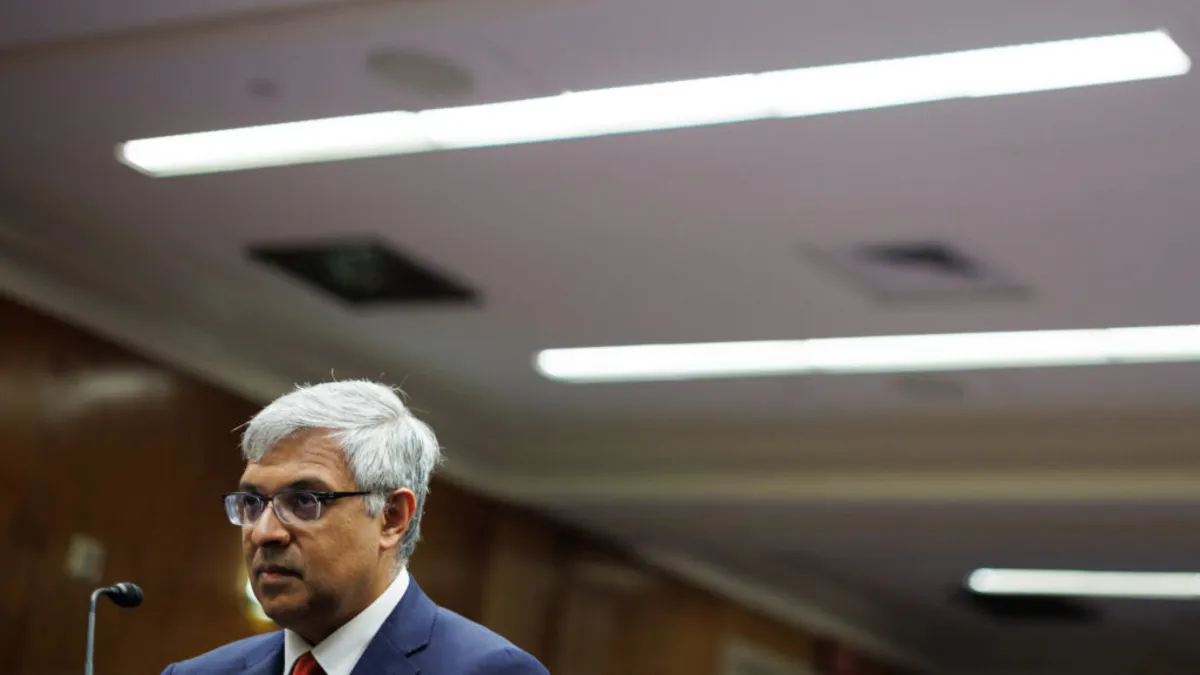
The head of the National Institutes of Health (NIH), Jay Bhattacharya, has provided a controversial explanation for the federal government's decision to cancel $500 million in contracts aimed at advancing messenger RNA (mRNA) vaccine development. Bhattacharya stated that the platform is no longer viable due to a significant lack of public trust in mRNA vaccines. This assertion was made during his appearance on Steve Bannon’s podcast, “War Room,” which aired over the weekend.
This rationale markedly contrasts with a previous statement from his superior, health secretary Robert F. Kennedy Jr., who claimed that vaccines developed using the mRNA platform were both ineffective and unsafe. This discrepancy raises questions about the government's unified stance on vaccine safety and efficacy.
During the podcast, Bhattacharya emphasized that the declining uptake of COVID-19 booster shots indicates a broader reluctance among the public to accept mRNA-based vaccines. "As far as public health goes, the mRNA platform for vaccines is no longer viable," Bhattacharya articulated. "You can’t have a platform where such a large fraction of the population distrusts the platform and expect it to work." This sentiment highlights the critical importance of public perception in the adoption of vaccination strategies.
Kennedy has long been a vocal critic of vaccines, raising concerns about their safety long before he assumed his current role in the government. The divergence in narratives between Bhattacharya and Kennedy reflects a growing divide among health officials regarding the future of vaccine technologies.
Michael Osterholm, director of the University of Minnesota’s Center for Infectious Disease Research and Policy, criticized Bhattacharya’s remarks as “disingenuous.” Osterholm pointed out that Kennedy and his allies have perpetuated skepticism around vaccines, which contributes significantly to public reluctance to get vaccinated. "That message that they’re selling is one of the major reasons why there is potential public reluctance,” he stated in a recent interview.
Bhattacharya confirmed that the decision to terminate the contracts issued by the Biomedical Advanced Research and Development Authority (BARDA) was made by Kennedy. BARDA is the division under the Department of Health and Human Services (HHS) responsible for developing medical countermeasures against both natural and bioterror threats. Notably, in May, BARDA also rescinded $766 million in grants to Moderna for developing vaccines aimed at potential flu pandemics.
On the podcast, Bhattacharya expressed his view that while the mRNA vaccine platform is “promising,” it is “not yet ready for prime time for vaccines.” Since the initial rollout of the first two mRNA vaccines for COVID-19—Comirnaty from Pfizer and BioNTech, and Spikevax from Moderna—billions of individuals globally have been vaccinated. These vaccines have been credited with saving millions of lives, despite the emergence of other vaccine platforms.
Bhattacharya echoed concerns shared by some critics regarding the mechanism of mRNA vaccines, which instruct the body to produce the spike protein of the SARS-CoV-2 virus. This process is intended to train the immune system to recognize and combat the virus upon infection. Critics argue that the quantity of antigen produced by these vaccines remains uncertain. “For vaccines, what you want is a technology where you understand the dose of the antigen being given,” he noted.
Scott Hensley, a professor of microbiology at the University of Pennsylvania, countered Bhattacharya's concerns, stating that similar issues exist with other vaccine types, including those made with live attenuated viruses. Hensley highlighted that extensive studies have shown that mRNA degrades shortly after vaccination, making it challenging to quantify the antigen amount, but this is a known issue in vaccinology.
“This is why we complete human clinical studies before vaccines are widely used in humans. Both the mRNA and live attenuated vaccine platforms have demonstrated safety and efficacy in clinical trials,” Hensley explained.
Moreover, Bhattacharya pointed out that COVID-19 vaccines, including those based on mRNA technology, do not completely prevent infection. He himself contracted COVID-19 two months after being vaccinated. While it is true that no vaccine offers permanent immunity against infection, the vaccines significantly reduce the risk of severe illness, hospitalization, or death.
“We would all love a vaccine that prevents infections altogether, but keeping people alive and out of the hospital during a pandemic is pretty darn good,” Hensley remarked. He also emphasized that improving mRNA technology should not lead to its abandonment but rather serve as a motivation for continued investment in research. “If we continue to invest in this platform, in 5-10 years we will likely be able to develop vaccines that elicit broader responses and better mucosal responses that prevent infections,” he added.
In conclusion, the ongoing debate about the viability of mRNA vaccines underscores the complexities of public health communication and vaccine acceptance. As the world prepares for potential future pandemics, the need for continued research and development in mRNA technology remains crucial.